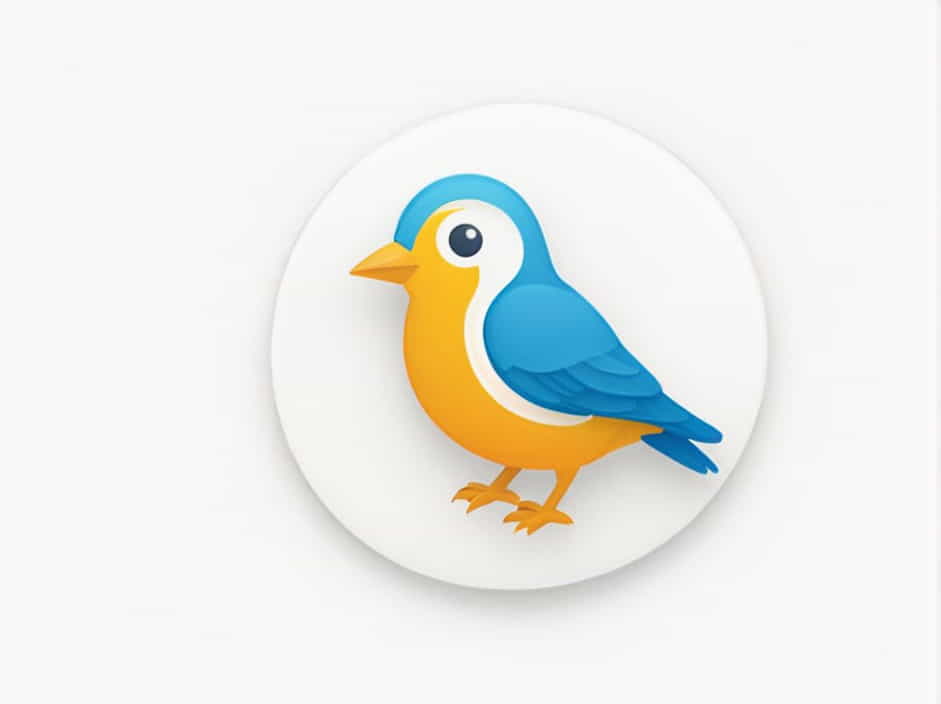Bird owners and bird enthusiasts often notice their feathered companions regurgitating food. This behavior can be surprising, leading to questions like, ‘Is this normal?’ or ‘Is my bird sick?’ The answer depends on the context. Regurgitation in birds can be completely normal and even a sign of affection, but in some cases, it might indicate a health issue.
This content will explore the causes, meanings, and differences between regurgitation and vomiting in birds, helping you understand when its normal and when you should be concerned.
1. What Is Regurgitation in Birds?
Regurgitation is a natural process in birds where partially digested food is brought up from the crop (a storage pouch in their throat) and expelled from the mouth. Unlike vomiting, regurgitation is a controlled and purposeful action, often associated with feeding, bonding, or mating behavior.
Common characteristics of bird regurgitation:
? The bird bobs its head up and down before expelling food.
? The food appears undigested or slightly softened.
? The bird often regurgitates onto a favorite object, person, or mate.
Understanding why birds regurgitate can help you determine whether its a normal behavior or a cause for concern.
2. Why Do Birds Regurgitate?
Birds regurgitate for several reasons, most of which are completely natural. Below are the most common explanations:
A. Courtship and Mating Behavior
In the wild, many birds regurgitate food as a way to show affection to their mate. This is a natural part of their courtship ritual, signaling care and bonding.
? Male birds often regurgitate to their female partners during mating season.
? This behavior strengthens the pair bond.
If you notice your pet bird regurgitating toward a mirror, toy, or even you, it might be displaying affection as it would toward a mate.
B. Feeding Young Chicks
Parent birds regurgitate food to feed their young. This is an essential process in raising baby birds, as chicks cannot digest solid food right away.
? Both male and female birds regurgitate food for their chicks.
? The food is softened, making it easier for the babies to consume.
This instinct remains in many birds, even if they dont have chicks. Some pet birds might regurgitate out of habit or instinct.
C. Bonding With Owners or Objects
Pet birds often view their owners as part of their flock or even as a potential mate. If your bird regurgitates food when its around you, it could be a sign of affection and trust.
? Birds may regurgitate on their favorite human, a toy, or perch.
? Its a sign of deep bonding rather than illness.
If you dont want this behavior, gently discourage it by redirecting your birds attention to another activity.
D. Overstimulation or Excitement
Sometimes, birds regurgitate when they get too excited or overstimulated. This can happen when:
? They see a favorite person or toy.
? They experience a lot of attention or interaction.
While not harmful, its important to ensure that excitement doesnt lead to obsessive behavior.
3. Regurgitation vs. Vomiting: Whats the Difference?
Its crucial to distinguish between normal regurgitation and vomiting, as vomiting often signals illness.
| Feature | Regurgitation | Vomiting |
|---|---|---|
| Control | Voluntary and controlled | Involuntary and sudden |
| Head Movement | Slow head bobbing motion | Shaking head rapidly |
| Food Appearance | Softened, but mostly intact | Digested, with mucus or liquid |
| Behavior Afterward | Acts normal, may re-eat food | Lethargic, weak, or distressed |
If your bird is vomiting instead of regurgitating, it may indicate an underlying health issue requiring immediate veterinary attention.
4. When Should You Be Concerned?
While regurgitation is often harmless, certain signs may indicate a problem.
A. Frequent or Excessive Regurgitation
If your bird is regurgitating too often, it could be a sign of:
? Obsessive behavior due to hormonal imbalances.
? A digestive issue caused by improper diet.
If the behavior becomes excessive, consult an avian veterinarian.
B. Signs of Illness
Regurgitation combined with other symptoms may indicate illness. Watch for:
? Weight loss or lack of appetite.
? Lethargy or unusual behavior.
? Changes in droppings or feather condition.
These symptoms suggest your bird may have an infection, crop disorder, or digestive issue.
C. Vomiting Instead of Regurgitating
If food is expelled forcefully, contains mucus, or is accompanied by head shaking, its likely vomiting, not regurgitation. This could indicate:
? Bacterial or fungal infections.
? Liver or kidney disease.
? Toxicity from contaminated food or environment.
Seek immediate veterinary care if you suspect vomiting.
5. How to Manage Regurgitation in Pet Birds
If your bird is regurgitating normally, you generally dont need to intervene. However, if its excessive or problematic, heres how you can manage it:
? Avoid overstimulating your bird. Keep interactions balanced.
? Minimize hormonal triggers. Reduce exposure to mirrors, limit petting around the back, and adjust lighting conditions.
? Provide a balanced diet. Ensure proper nutrition to prevent digestive issues.
? Monitor your birds health. If regurgitation is accompanied by illness symptoms, seek veterinary help.
By understanding when regurgitation is normal and when its a sign of a problem, you can ensure your bird remains happy and healthy.
6. Is Bird Regurgitation Normal?
Yes, regurgitation is a normal and natural behavior in birds. It serves as a way to feed young, bond with mates or owners, and express affection. However, if regurgitation becomes excessive or is accompanied by signs of illness, it may indicate a medical problem.
Key Takeaways:
? Normal regurgitation is voluntary and controlled.
? Birds regurgitate for mating, feeding, bonding, or excitement.
? Vomiting, on the other hand, is a sign of illness.
? If excessive regurgitation or vomiting occurs, seek veterinary advice.
Understanding this behavior can help bird owners better care for their feathered friends, ensuring they lead a happy and healthy life.
